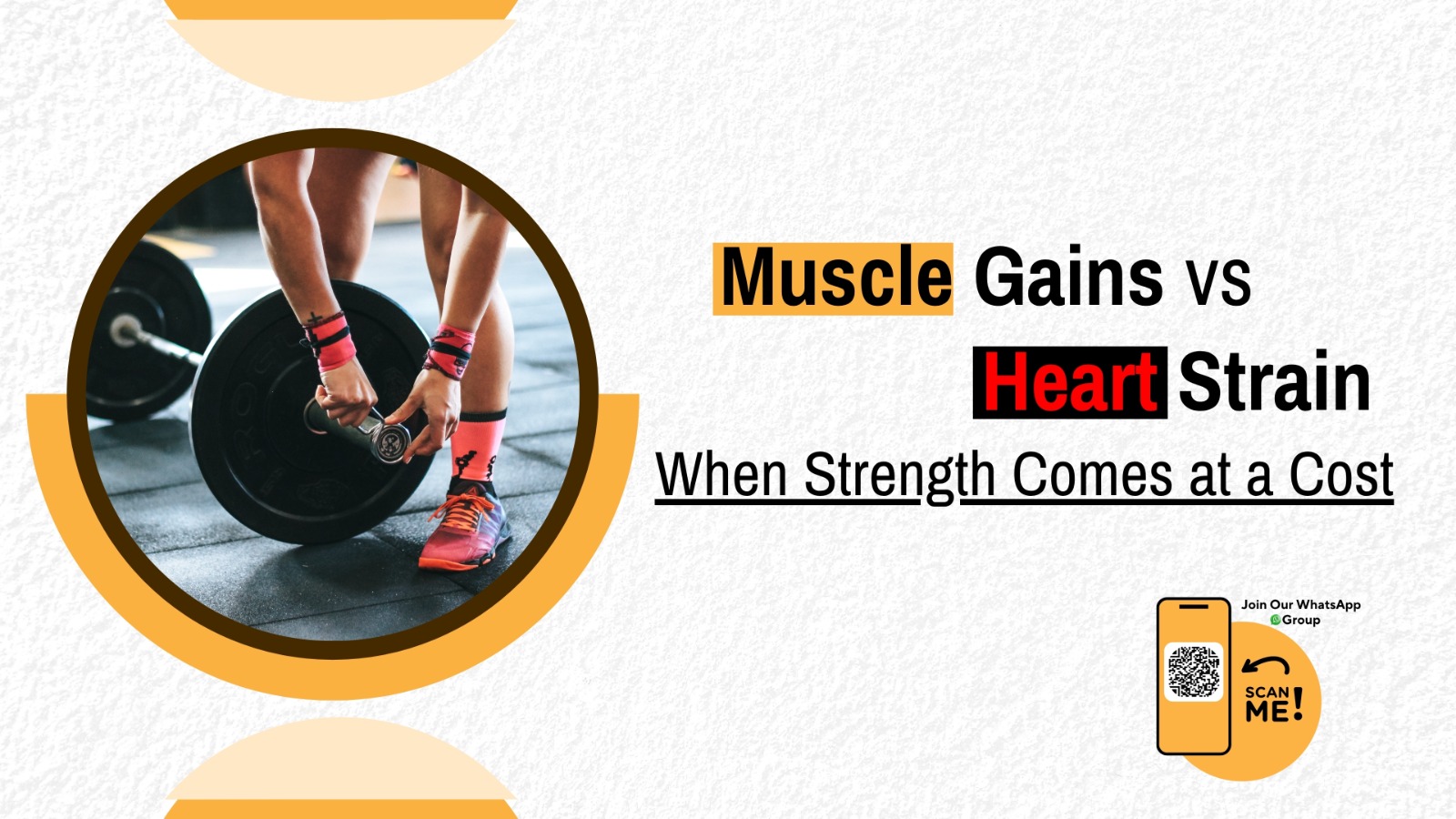Why It Matters
As healthcare professionals, we’ve long encouraged strength training. It improves metabolic health, supports joints, and even boosts mood. But what happens when someone takes it too far?
According to a recent report, many serious strength athletes especially competitive bodybuilders may be unknowingly harming their hearts. And it’s not just about lifting heavy. It’s about the extreme routines they follow: intense workouts, strict diets, dehydration tactics, and the use of performance-enhancing substances.
It’s a combination that can quietly build up cardiovascular damage and sometimes lead to sudden cardiac events.
The Science Behind the Worry
Here’s what’s happening:
- Heavy lifting stresses the heart. Repeated high-intensity workouts raise heart rate and blood pressure, increasing strain on the heart muscle.
- Extreme diets (low-fat, no-carb, high-protein) can deplete important nutrients and upset the body’s electrolyte balance.
- Intentional dehydration—done to “look shredded” before a competition, lowers blood volume and thickens the blood, putting extra pressure on the heart.
- Drugs and supplements like anabolic steroids, stimulants (e.g., clenbuterol), and diuretics can change how the heart functions and disrupt rhythm.
One or two of these might not be dangerous on their own. But together, they can create a “perfect storm” of cardiovascular risk.
A Real-World Example
Think of a 30-year-old male bodybuilder:
- He trains twice a day.
- He’s on a strict high-protein, no-carb diet.
- He’s taking diuretics and cutting water before a contest.
- He uses steroids or other muscle-enhancing compounds.
Now picture him doing a heavy deadlift set, dehydrated and sleep-deprived. His heart rate spikes, but his electrolyte levels are off. There’s reduced blood volume and high pressure in the system.
This is how arrhythmias, heart failure, or even cardiac arrest can happen—even in people who look healthy.
What Clinicians Should Do
1. Don’t ignore the “healthy-looking” patient.
If a patient brags about extreme training or dieting, ask detailed questions. Dig into their supplement use, hydration habits, and training frequency.
2. Add basic heart checks for athletes.
Include:
- Resting ECG and possibly a Holter monitor
- Echocardiography to check structure and function
- Blood tests for troponins, BNP, and electrolyte levels
3. Educate patients about real risks.
Let them know: pushing the body too far can turn strength into a danger. Especially when drugs or water-cutting are involved.
4. Use a team approach.
Refer to sports cardiology, sports nutritionists, psychologists, or endocrinologists when needed. Managing athletic patients takes a multi-specialist view.
What Needs More Research?
To build strong, science-backed recommendations, we need more data.
- 1.Track athletes long-term We need cohort studies to follow resistance athletes through multiple training cycles, measuring:
- ECG patterns
- Blood pressure changes
- Hormone levels
- Risk of arrhythmias or structural heart disease
- 2 Define safe limits
What’s the tipping point between beneficial and risky training? What level of dehydration or stimulant use becomes unsafe?
- 1 Design educational interventions
Can structured education reduce unsafe practices without harming performance goals?
Final Message: Build Smart, Not Just Big
We’re not saying resistance training is harmful. It’s one of the best tools in preventive care. But extreme routines, especially those involving dehydration and drugs can silently damage the heart.
As clinicians, we need to:
- Ask the right questions.
- Screen even “fit” patients wisely.
- Provide guidance based on evidence, not gym trends.
Let’s push for safe strength, smarter science, and sustainable gains—without sacrificing heart health in the process.
Reference:
https://pubmed.ncbi.nlm.nih.gov/40393525/



